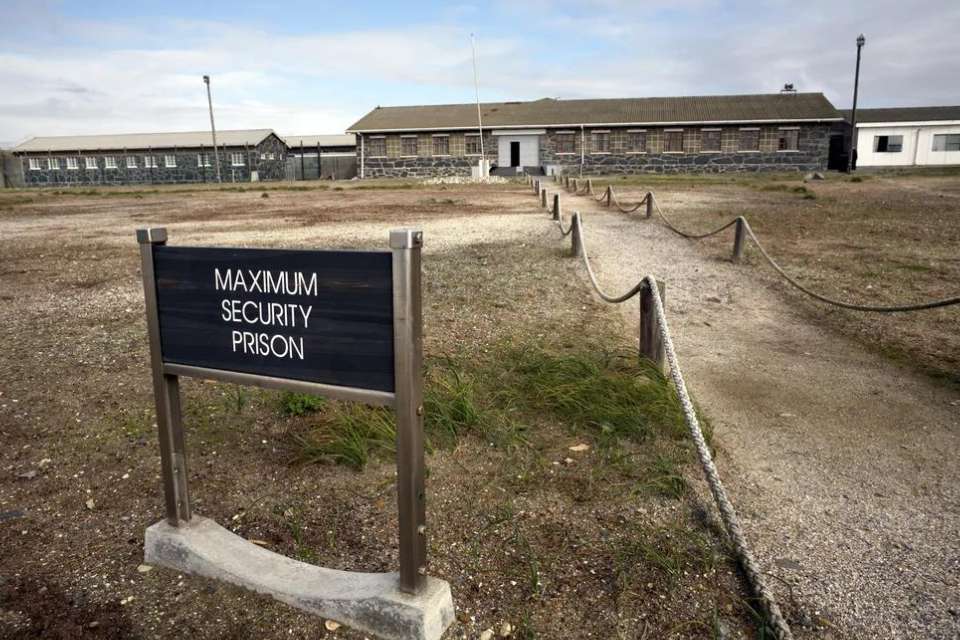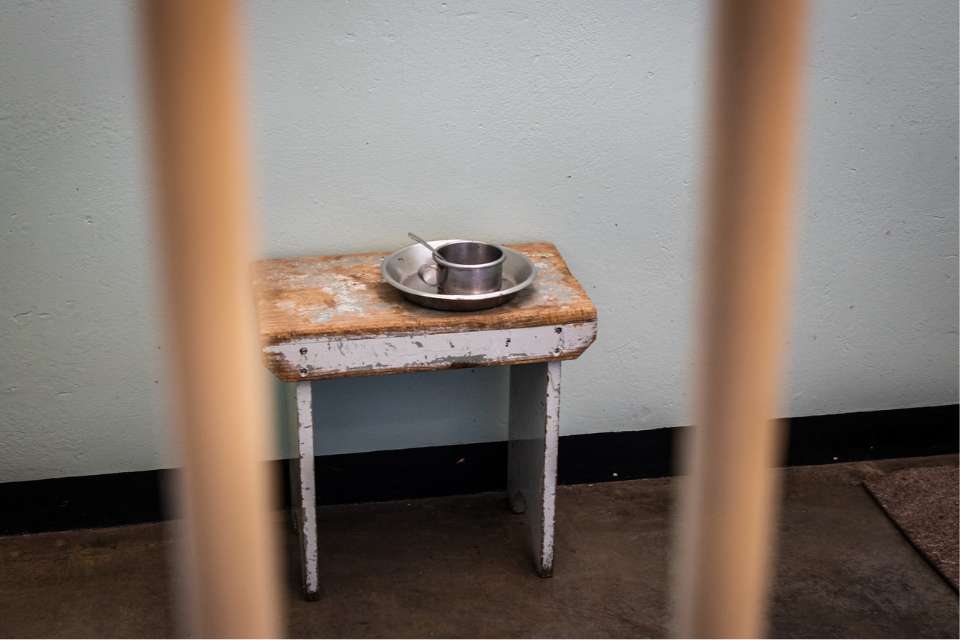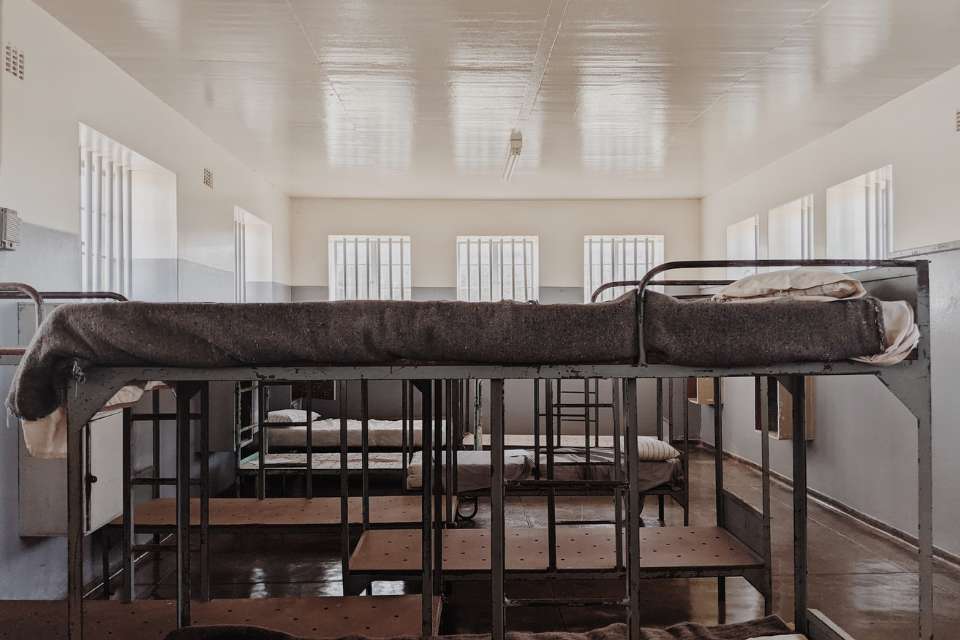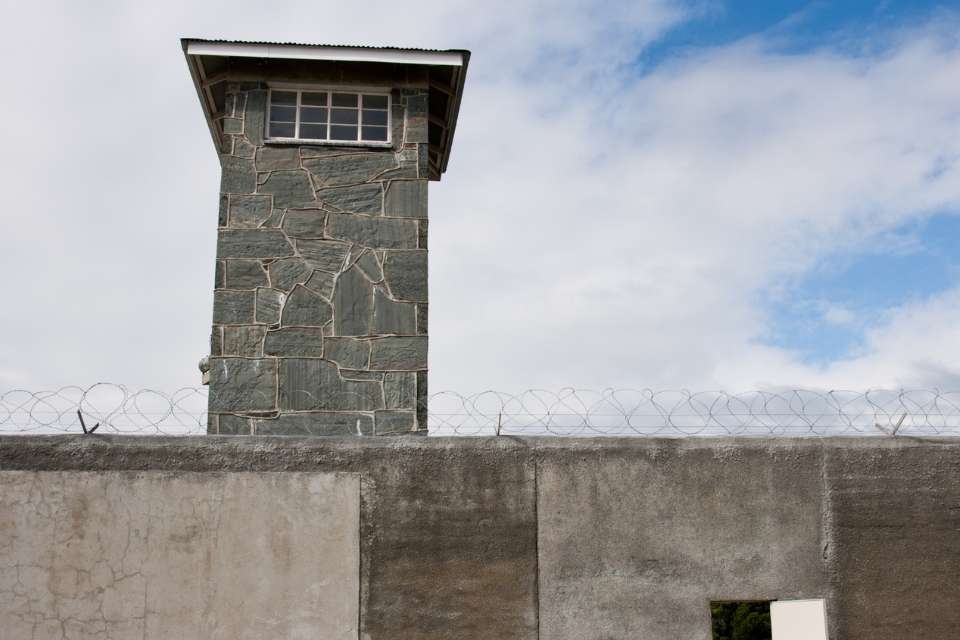Robby Island has a rich and complex history, with its use as a prison being just one chapter in its story.
Today, the island has been transformed into a museum and UNESCO World Heritage Site, showcasing its historical significance and attracting visitors from around the world.
During the apartheid era, Robben Island served as a maximum security prison for political prisoners. The island’s buildings, including the prison, stand as powerful symbols of the triumph of democracy over oppression and racism.
However, the days of Robben Island as a functioning prison are long gone.
In this article, we will explore the history of Robben Island as a prison, its transformation into a museum, and its current status as a cultural heritage site. We will also discuss the challenges faced in preserving the island and the role of ex-political prisoners in sharing their stories with visitors.
Robben Island’s past as a prison is a significant part of its history, but today it serves a different purpose. Let us delve into its fascinating story and discover the enduring legacy of this iconic South African landmark.
Key Takeaways:
- Robben Island was used as a maximum security prison during the apartheid era.
- It has been transformed into a museum and UNESCO World Heritage Site.
- The island’s history is preserved by ex-political prisoners who share their stories with visitors.
- The preservation and maintenance of the island present ongoing challenges.
- Robben Island serves as a powerful symbol of resilience and the triumph of democracy.
The Historical Use of Robben Island as a Prison

Throughout its history, Robben Island has served as a prison for various groups. In the 17th century, it was used to isolate slaves and prisoners of war who were forced to chop stone and seashell for construction purposes.
In the 19th century, it became a hospital for lepers and lunatics, many of whom were indigent and black women. During the apartheid era, a maximum-security prison was established on the island to incarcerate both ordinary and political prisoners.
Notable political prisoners, including Nelson Mandela, were held on Robben Island during this time.
The Transformation of Robben Island
After the end of the apartheid era, Robben Island underwent a remarkable transformation. Nelson Mandela, who himself was once imprisoned on the island, recognized its potential as a symbol of reconciliation and took bold steps to repurpose it.
In 1996, the prison on Robben Island was closed down and the site was officially transformed into a museum.
Today, Robben Island is not only a significant historical site, but also a popular tourist attraction in South Africa. Visitors can take guided tours that offer valuable insights into the island’s history and the experiences of the political prisoners who were held there during the apartheid era.
The museum provides a rich narrative, shedding light on the struggles and triumphs of those who fought for freedom.
Robben Island’s transformation has not gone unnoticed. It has been recognized as a UNESCO World Heritage Site, a prestigious designation that highlights its universal value and significance.
The island’s historical and cultural importance, coupled with its breathtaking natural landscapes, make it a must-visit destination for both locals and international tourists.
The Role of Ex-Political Prisoners in Preserving Robben Island’s History

The preservation and interpretation of Robben Island’s history are closely tied to the ex-political prisoners who were once held there. Many of us, the former prisoners, are actively involved in the Robben Island Museum Council, which has been responsible for administering the island since its transformation into a museum.
We are passionate about preserving the legacy of Robben Island and ensuring that its history is shared with the world.
As part of our efforts, an Ex-Political Prisoner Advisory Committee has been established to help protect and showcase the site. We work closely with the museum staff to ensure that the stories and experiences of those who were imprisoned on Robben Island are accurately represented.
Through our personal accounts, guided tours, and interactions with visitors, we provide a firsthand perspective of the prison and its significance in South African history.
Our involvement goes beyond guiding tours. We are dedicated to ensuring that Robben Island remains a place of education and remembrance.
Through talks, interviews, and engagements with the media, we continue to raise awareness about the history of the island and the struggle against apartheid. Our goal is to inspire visitors and future generations to stand up against injustice and to cherish the hard-won freedom that we fought for.
Preserving the history of Robben Island is essential not only for us, but also for its status as a tourist attraction. Visitors come from all over the world to learn about the island’s past and to connect with its powerful narrative.
By actively participating in the museum’s activities, we ensure that the story of Robben Island is authentic and accurate, reflecting the true experiences of those who were imprisoned here. We take great pride in preserving this important piece of South African history and sharing it with the world.
The Significance of Robben Island as a Cultural Heritage Site

Robben Island holds significant cultural and historical value, not just for South Africa, but for the world. Its transformation from a place of oppression to one of liberation and democracy serves as a powerful symbol of the triumph of the human spirit.
The island’s buildings, particularly the prison, are physical reminders of the injustices of the apartheid era and the resilience of those who fought against it.
As a UNESCO World Heritage Site, Robben Island is recognized for its role in inspiring political and social transformation, both within South Africa and globally.
The preservation of Robben Island allows visitors to experience firsthand the struggles and triumphs of those who were held captive during the apartheid era. It offers a unique opportunity to learn about South Africa’s history and the ongoing fight for equality.
Challenges and Preservation Efforts for Robben Island

As Robben Island stands as a testament to South Africa’s history and attracts visitors from around the world, it also faces challenges in terms of preservation and maintenance.
Over the years, many of the island’s buildings have fallen into disrepair due to the lack of regular upkeep. This necessitates urgent repair and maintenance work to ensure their long-term preservation.
In addition, the growing number of visitors to Robben Island puts strain on its natural and built resources. The increased footfall and activity can have a detrimental impact on the island’s delicate ecosystem and structures.
To address this, efforts have been made to implement an Integrated Conservation management plan and collaborate with the Department of Public Works. These initiatives aim to manage and mitigate the impact of visitors on the island’s resources.
However, despite these ongoing preservation efforts, further improvements are necessary to sustain the long-term preservation of Robben Island.
Continued collaboration between stakeholders, including governmental bodies and the Robben Island Museum Council, is crucial in addressing the challenges and ensuring the island’s historical significance is safeguarded for future generations.
Conclusion
Robben Island’s historical significance and current status as a tourist attraction make it a must-visit destination for travelers from all over the world.
The island’s transformation into a museum and UNESCO World Heritage Site ensures that its rich history is preserved and shared with future generations.
What sets Robben Island apart is the unique perspective offered by the ex-political prisoners who were once held there.
Their involvement in the preservation efforts adds a personal touch to the visitor experience, allowing us to hear firsthand accounts and gain a deeper understanding of the island’s significance.
As we explore the grounds and buildings of Robben Island, we are reminded of the island’s legacy of resilience, reconciliation, and the triumph of democracy over oppression.
It serves as a symbol not only for South Africa but for the world, inspiring us to appreciate the power of human spirit and the pursuit of justice.
FAQ
Is Robben Island still used as a prison?
No, Robben Island is no longer used as a prison. It was historically used as a prison, but it has been transformed into a museum and UNESCO World Heritage Site.
What was the historical use of Robben Island as a prison?
Robben Island served as a maximum-security prison during the apartheid era, where both ordinary and political prisoners were held. It also previously functioned as a place to isolate slaves, prisoners of war, and as a hospital for lepers and lunatics.
How has Robben Island been transformed?
Robben Island has been transformed into a museum and UNESCO World Heritage Site. The prison was closed in 1996, and now the island offers guided tours that provide insights into its history and the experiences of political prisoners.
What role do ex-political prisoners play in preserving Robben Island’s history?
Many ex-political prisoners are actively involved in the preservation and administration of Robben Island. They are part of the Robben Island Museum Council and lead guided tours, sharing their personal stories and providing a firsthand perspective.
What is the significance of Robben Island as a cultural heritage site?
Robben Island holds significant cultural and historical value as a symbol of resilience and the triumph of democracy over oppression. It is recognized as a UNESCO World Heritage Site and serves as a reminder of the injustices of the apartheid era.
What are the challenges and preservation efforts for Robben Island?
Robben Island faces challenges in terms of preservation and maintenance. The buildings on the island require repair due to the lack of regular upkeep, and the increasing number of visitors puts strain on its resources.
Efforts are being made to address these challenges through an Integrated Conservation management plan and collaborations with the Department of Public Works.
What is the current status of Robben Island as a tourist attraction?
Robben Island continues to attract visitors from around the world as a popular tourist attraction. Its transformation into a museum and UNESCO World Heritage Site ensures that its history is preserved and shared with future generations.

